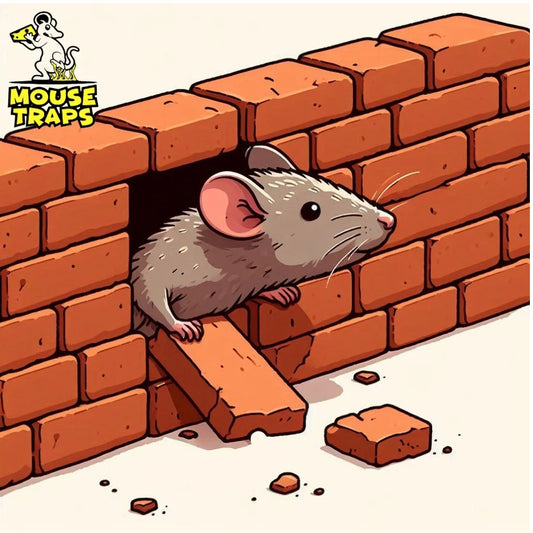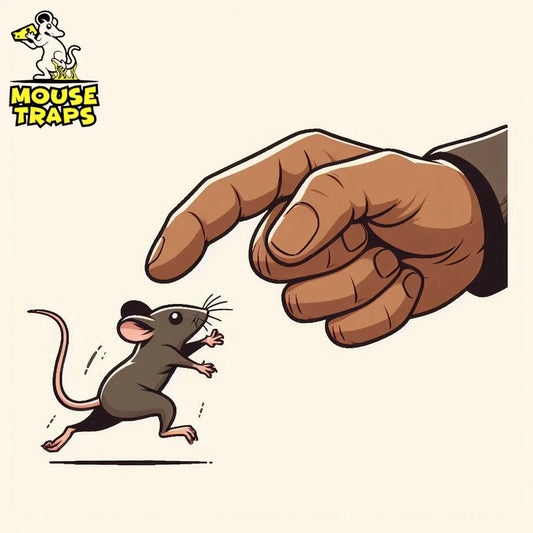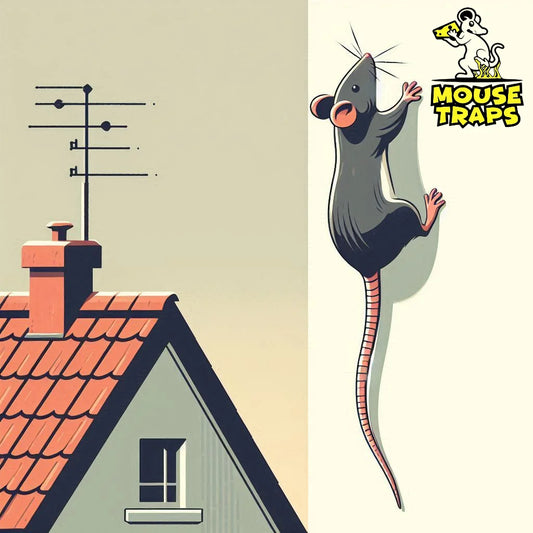Introduction:
In the picturesque landscapes of the UK, many households find joy in feeding their pets and wild birds outdoors. However, this seemingly harmless activity can inadvertently attract unwelcome guests: rats. These rodents are clever, persistent, and can be quite challenging to manage once they discover a food source. This comprehensive guide will provide practical solutions and insights into using mouse traps to keep your outdoor spaces rat-free.
Understanding the Rat Problem:
The Rodent Menace:
Rats are highly adaptable creatures found throughout the UK. They tend to be more active, at night and have a sense of smell, which helps them find food easily. Outdoor pet food and bird seed are tempting treats, for these creatures that take advantage of any opportunity to feed.

Health Risks Posed by Rats:
Rats carry a variety of diseases that can affect both humans and animals. Diseases, like leptospirosis, salmonella and hantavirus can spread through rat droppings, urine and bites. It's important to prevent rats from reaching food or bird seed to reduce these health hazards.
Strategies for Preventing Rat Infestations:
Proper Food Storage:
One of the simplest yet most effective strategies to prevent rats is proper food storage. Always store pet food and bird seed in airtight containers made of metal or heavy-duty plastic. This will not only keep the food fresh but also make it inaccessible to rats.

Feeding Schedule:
Establish a regular feeding schedule for your pets and birds. Remove any uneaten food after feeding times to minimize the availability of food sources for rats. This routine can significantly reduce the likelihood of attracting rodents.
Cleanliness and Maintenance:
Maintaining a clean feeding area is essential. Regularly clean up any spilled food, bird seed, or pet food. Ensure that feeding stations are kept tidy and free from debris. Trim back any overgrown vegetation where rats could hide and nest.

Using Mouse Traps to Control Rat Populations:
Types of Mouse Traps:
There are types of mouse traps each offering unique benefits. Knowing the variety can assist you in selecting the option, for your requirements.
Snap Mouse Traps:
Snap traps are the most traditional and widely used type of mouse trap. They work by using a spring-loaded bar to snap down on a rat when it takes the bait. These traps are highly effective and provide a quick solution to rat problems.
Electronic Mouse Traps:
Electronic traps deliver a high-voltage shock to kill rats instantly. These traps are humane and provide a clean solution as they often come with an indicator to show when a rat has been caught.
Humane Live Catch Mouse Traps:
Live catch traps allow you to capture rats without harming them. Once captured, the rats can be released far away from your property. This method is suitable for those who prefer a non-lethal approach to rodent control.
Sticky Glue Pads Mouse Traps:
Glue traps use a sticky adhesive to trap rats. While effective, these traps are often criticized for being inhumane as they cause prolonged suffering to the trapped animals.
Best Practices for Using Mouse Traps:
Placement:
The placement of mouse traps is critical to their effectiveness. Position traps along walls, near feeding areas, and in places where you have observed rat activity. Rats usually stick to set routes so setting traps along these paths can boost your odds of catching them.

Baiting:
Choose bait that is attractive to rats, such as peanut butter, cheese, or pet food. Ensure the bait is securely attached to the trap to prevent rats from taking it without triggering the trap.
Monitoring and Maintenance:
Regularly check your traps and dispose of any caught rats promptly. Reset traps and replace bait as needed to maintain their effectiveness.
Additional Preventative Measures:
Rodent-Proofing Your Property:
Seal any gaps, cracks, or holes in your home's exterior to prevent rats from entering. Pay particular attention to areas around pipes, vents, and doors. Using metal mesh or hardware cloth can be effective in blocking these entry points.
Professional Pest Control:
If your rat problem persists despite your best efforts, it may be time to call in professional pest control services. These experts can provide more advanced solutions and ensure that your property remains rodent-free.

Natural Deterrents:
Some natural deterrents can help keep rats at bay. Peppermint oil, for example, is known to repel rodents. Soaking cotton balls in peppermint oil and placing them around feeding areas can discourage rats from approaching.
Anecdotes and Personal Experiences:
A Gardener’s Tale:
John, a passionate gardener from Kent, shared his experience with rats invading his bird feeding stations. Despite his efforts to keep the area clean, the rats persisted. John decided to use snap traps strategically placed around his garden. Within a few weeks, he noticed a significant reduction in rat activity. His story is a testament to the effectiveness of mouse traps when used correctly.
A Pet Owner’s Challenge:
Lucy, a pet owner from Manchester, faced a similar issue with rats accessing her outdoor cat food. After seeking advice, from a pest control specialist, she decided to use traps. These traps do not get rid of the rats. Also reassured her that her pets were protected from dangerous illnesses.
Addressing Counterarguments and Alternative Perspectives:
Humane Concerns:
Some people are uncomfortable with the idea of using lethal traps to control rat populations. Considering options, like catch traps and natural deterrents is valuable. Its crucial to assess how well they work and how feasible they are, in practice. In severe infestations, lethal traps may be the most efficient solution.

Environmental Impact:
Concerns about the environmental impact of using traps, particularly glue traps, are valid. Choosing traps that are humane and environmentally friendly, such as electronic traps or live catch traps, can help mitigate these concerns.
FAQs:
Conclusion:
Keeping rats away, from food or bird seed presents a complex problem that calls for a mix of smart strategies and reliable tools. By using mouse traps strategically and maintaining a clean and secure feeding environment, you can enjoy the presence of your pets and wild birds without the nuisance and risks posed by rats. Remember, consistency and vigilance are key to keeping your outdoor spaces rat-free.




